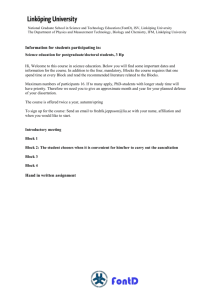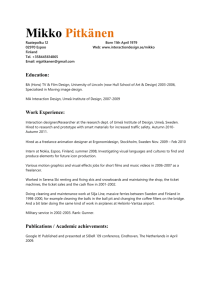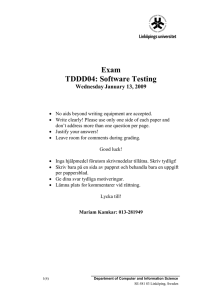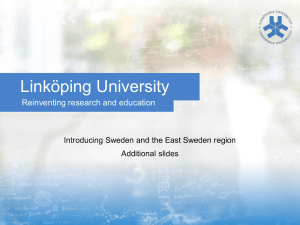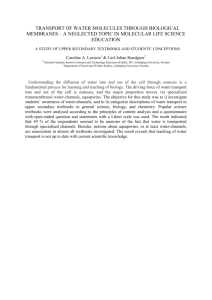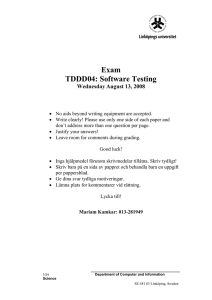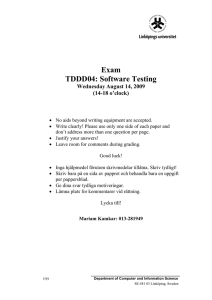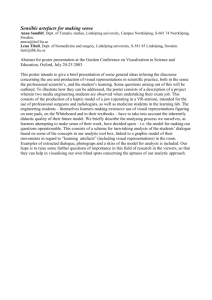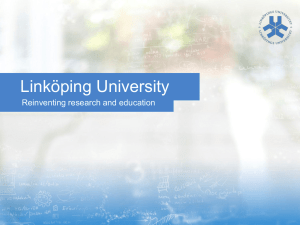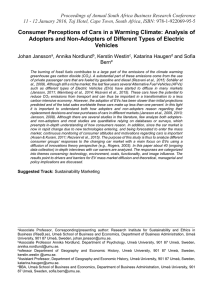Aims and assessment of laboratory based project work in a Master`s
advertisement
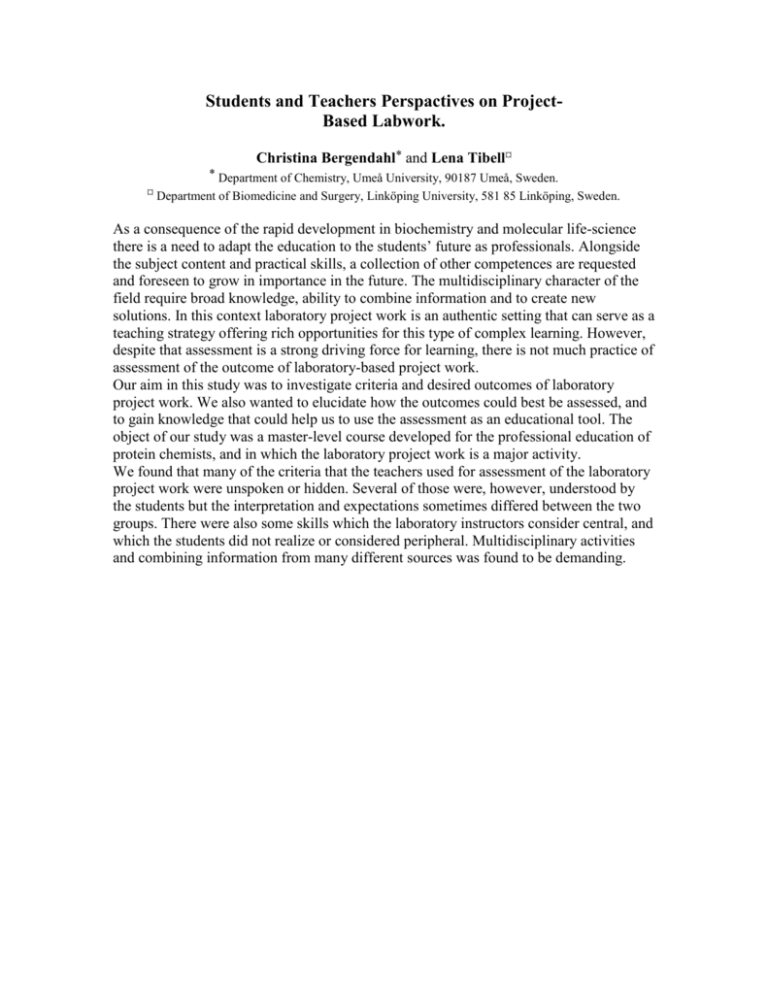
Students and Teachers Perspactives on ProjectBased Labwork. Christina Bergendahl* and Lena Tibell¤ * Department of Chemistry, Umeå University, 90187 Umeå, Sweden. ¤ Department of Biomedicine and Surgery, Linköping University, 581 85 Linköping, Sweden. As a consequence of the rapid development in biochemistry and molecular life-science there is a need to adapt the education to the students’ future as professionals. Alongside the subject content and practical skills, a collection of other competences are requested and foreseen to grow in importance in the future. The multidisciplinary character of the field require broad knowledge, ability to combine information and to create new solutions. In this context laboratory project work is an authentic setting that can serve as a teaching strategy offering rich opportunities for this type of complex learning. However, despite that assessment is a strong driving force for learning, there is not much practice of assessment of the outcome of laboratory-based project work. Our aim in this study was to investigate criteria and desired outcomes of laboratory project work. We also wanted to elucidate how the outcomes could best be assessed, and to gain knowledge that could help us to use the assessment as an educational tool. The object of our study was a master-level course developed for the professional education of protein chemists, and in which the laboratory project work is a major activity. We found that many of the criteria that the teachers used for assessment of the laboratory project work were unspoken or hidden. Several of those were, however, understood by the students but the interpretation and expectations sometimes differed between the two groups. There were also some skills which the laboratory instructors consider central, and which the students did not realize or considered peripheral. Multidisciplinary activities and combining information from many different sources was found to be demanding.
